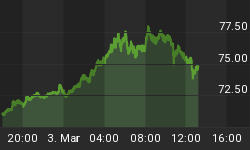"...If you think the Dollar looks weak on the charts, wait 'til you see what's wrong with the Euro..."
SERIOUS ECONOMISTS never much liked the Euro. Then again, serious economists never much bothered to make money from trading. John Maynard Keynes just goes to prove it.
World-famous scourge of both gold and "the long run", Keynes averaged nearly 13% per year trading the funds of Kings College, Cambridge, during the Depression. London's stock market, meantime, ticked lower by half-a-per cent per annum.
No doubt Keynes would be buying Euros today, if only the long run - "when we're all dead" as he noted - hadn't got him six decades ago. Anyone dumb enough to fret about fundamentals, however, has to wonder why everyone else thinks the Euro looks good.
"They're treating the Euro as if it was the old German D-Mark," says Bernard Connolly, global strategist at Banque AIG, "but it's not. Germany has regained competitiveness. It has a whopping current surplus and can withstand a higher Euro: France, Italy, Spain, Greece, and Ireland cannot."
Spain is now running a current account deficit worth more than 9% of GDP and its housing market is tipping into freefall as Euro rates rise. Greece took seven years to cut its state deficit below the agreed Eurozone limit, but it was too late; more than 42% of its outstanding bonds are due for repayment by 2009. Total government debt in Athens is second only to Italy, which in turn has suffered a drop in labor cost competitiveness compared with Germany of between one-fifth and one-third in the last decade.
Late last month the central bank of Ireland warned that the Celtic Tiger's own real estate bubble can't bear further interest-rate hikes....and now the French have elected a new president who's vowed to "to launch a diplomatic offensive...to weaken the Euro," reports Le Monde.
"There isn't a single country in the world where money isn't a political instrument serving growth and employment," said Nicholas Sarkozy during the election campaign ending last Sunday. "Everybody else is protecting himself; Europe cannot be the only one being disarmed."
"I am asking that we do with the Euro what Americans do with the Dollar, the Japanese with the Yen and the Chinese with their Yuan. Is it too much to ask that the ECB push down the Euro to obtain a more favorable exchange rate?"
Trouble is, the European Central Bank has been doing all it can to debase the Euro, as we'll see in Part II. Yet still the world wants to bid up the currency.
Last month the Euro popped above $1.3680, up by two-thirds versus the Dollar from six years ago. Early in May, the Euro hit a fresh life-time high against the Japanese Yen. Way up there at ¥163, it has risen by more than 80% against the world's cheapest money since mid-2000.
Versus the Swiss Franc, old faithful of the world's top five currencies, it's climbed 13% since 2002. Since February this year, it's even knocked Sterling - darling of central bank and fixed-income reserve managers everywhere - down by more than 4%.
Sterling itself has been trading around $2.00 per Pound, a 26-year high of its own. One Pound in New York will buy you twice as much stuff as it will in London. Yet still the Euro wins out!
Whatever Sarkozy might think, Eurozone interest rates can't explain the Euro's ongoing bull market. Paying 325 basis-points more than the Yen, it still lags the Dollar. Eurozone interest rates sit only 140 points ahead of the Swiss Franc - hardly enough to cover the rent on a suite of hedge-fund offices in Mayfair. Today saw the Bank of England raise rates - and the ECB stick - yet again, the Euro rose versus Sterling!
Then there's the money supply, that mud-covered fossil buried deep inside the European Central Bank's mandate by its ancestor, the German Bundesbank. Broad money in the Eurozone (M3) grew nearly 11% in the year to March 2007, a two-decade record. It's grown by more than one-half since the Esperanto became flesh and began filling cash-tills across Europe at the start of 2002.
The Eurozone's population, meantime, has risen only 3.6% in size - including the two million Slovenians who joined at the start of this year. The Eurozone's now got a lot more money per head, in short - exactly the monetary inflation that putting the Bundesbank in charge of Europe was supposed to prevent.
"Independence doesn't mean indifference," said president-elect Sarkozy of the European Central Bank late last year. "We can't go on with the indifference of a certain number of [central] bankers who don't understand that the priority isn't the fight against inflation which doesn't exist."
Inflation in the Eurozone does exist, however. Even on the official Consumer Price Index, the rising cost of living in Europe has now destroyed 10% of the Euro's purchasing power since it became the world's first sovereign currency to lack its own sovereign.
Perhaps it should come as no surprise, therefore, to find that physical gold bullion has gained nearly 50% versus the Euro since the start of 2005. Measured in Dollars, gold has outstripped gains in the Euro by more than one half since 2001.
















